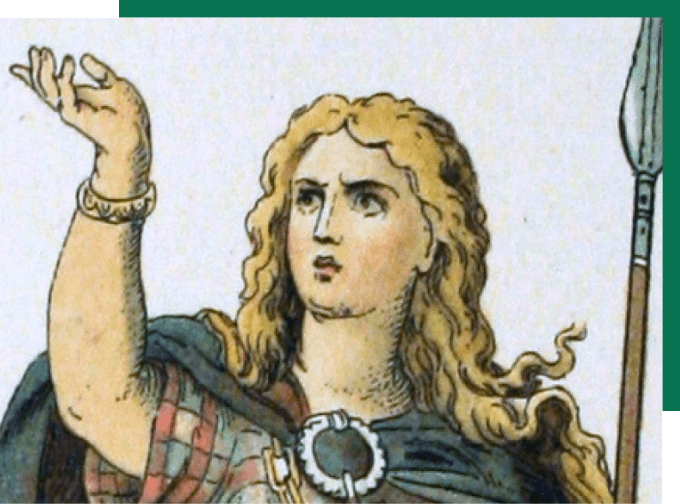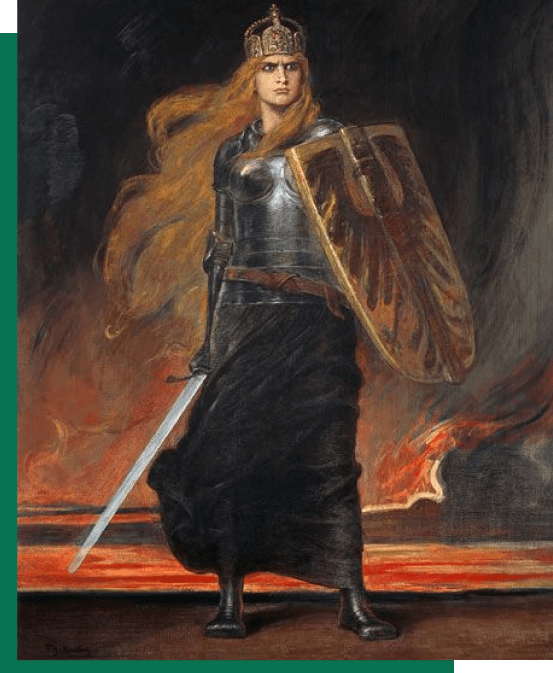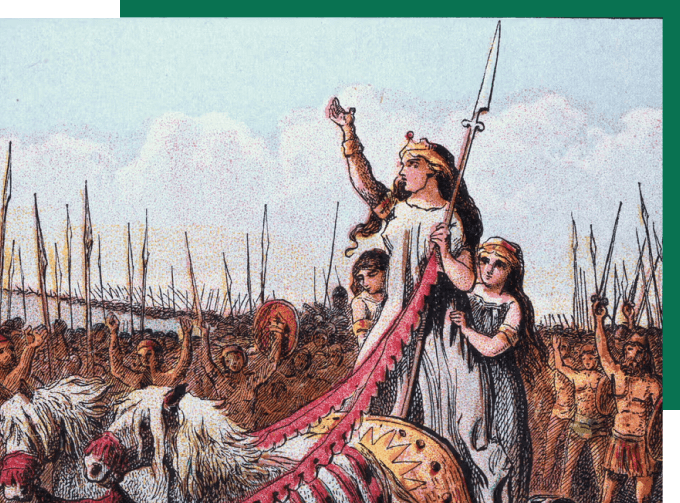Chariot
0
Her Legacy
A Fearless Spirit
The Romans thought they had won. After the death of her husband, King Prasutagus, they seized his kingdom, publicly humiliated Boudica, and brutalized her daughters. They believed they were crushing a dynasty, but all they did was ignite a firestorm. The Romans broke their promises, but they couldn’t break her spirit. Instead, Boudica transformed her rage into a rallying cry, uniting the Iceni and other Celtic tribes under one banner. She knew there was only one way forward: to fight.


A Rage That Shook The World
Boudica’s revenge was swift and devastating. Leading a massive army of Britons, she didn’t just fight—she conquered. Roman strongholds fell one by one. Cities like Camulodunum (modern-day Colchester) were reduced to the map. Londinium (London), the busiest Roman trade center, was burned to the ground. She brought the entire province to its knees, leaving a trail of fear and shattered shackles all the way to Rome. She proved that a woman, fueled by righteous fury, could bring an entire empire to its knees.
The Final Stand
Though her victories were epic, the rebellion could not last. In a final, desperate clash, the Roman governor rallied his forces against Boudica’s army. Outnumbered but not outmaneuvered, the Britons fought to the last, but Roman discipline proved too much. Facing certain capture, Boudica made another choice. According to Roman historians, she took her own life with poison, choosing death over being enslaved by her enemies.





